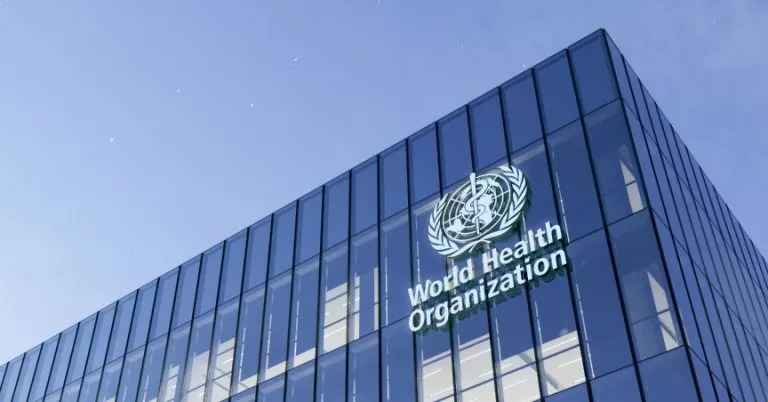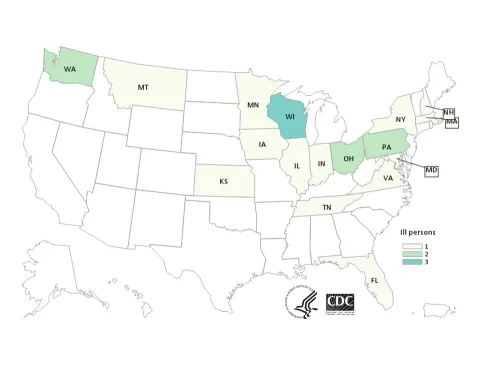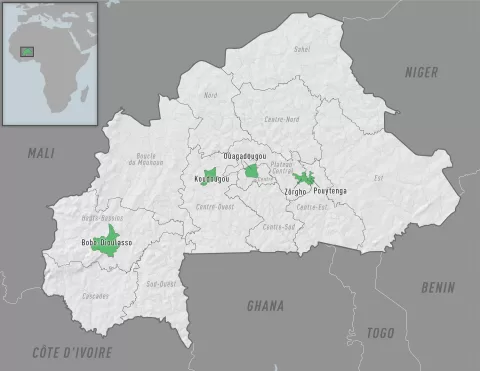Argentina’s recent announcement of its withdrawal from the World Health Organization (WHO) marks a significant shift in its health policy amid growing discontent with global health governance. President Javier Milei’s decision reflects his administration’s belief that the WHO has failed to meet its foundational objectives, particularly regarding the accountability of its COVID-19 international response. Critics argue that the organization has promoted guidelines, like prolonged quarantines, that lack scientific backing, leading to social and economic upheaval. This move aligns Argentina with other nations questioning their partnerships with global health organizations and the effectiveness of their contributions. As the world grapples with the aftermath of the pandemic, the implications of Argentina’s departure could resonate far beyond its borders, sparking a reevaluation of international collaboration in health.
The recent intention of Argentina to exit the World Health Organization represents a pivotal moment in the landscape of global health governance. Under the leadership of President Javier Milei, this decision highlights deep-seated frustrations with WHO policies and their perceived shortcomings in addressing health crises, particularly during the COVID-19 pandemic. By withdrawing from this prominent health entity, Argentina signals its desire to reshape its public health strategy and assert more autonomy over its health decisions. This development raises critical questions about the future relationship between member states and international health authorities. As countries recalibrate their commitments to organizations like WHO, the ripple effects of Argentina’s withdrawal may ignite broader debates about global health accountability and the role of science in public policymaking.
Impact of Argentina’s Withdrawal from the WHO
Argentina’s decision to withdraw from the World Health Organization (WHO) marks a significant turning point in its health policy and its relationship with global health governance. Under President Javier Milei, the country is re-evaluating its participation in international health initiatives, especially in light of the criticisms directed towards the WHO during the COVID-19 pandemic. This shift mirrors sentiments expressed by other nations, particularly the United States, which has similarly cited dissatisfaction with the WHO’s pandemic response as a primary reason for its departure.
The ramifications of Argentina’s withdrawal could extend beyond its borders and into the fabric of global health collaboration. Such a move raises questions about accountability and the responsibilities of international health organizations. Critics argue that without participation from key countries like Argentina, the WHO’s ability to address future health crises may be diminished, possibly reducing the effectiveness of collaborative responses to pandemics and other health emergencies. Furthermore, the “anti-science” rhetoric prevalent in political discourse can undermine public trust in health recommendations and complicate efforts to tackle health crises.
Javier Milei’s Controversial Health Policies
President Javier Milei’s approach to health policy reflects a broader libertarian philosophy that emphasizes individual freedoms over collective health measures. His administration’s choice to withdraw from the WHO is grounded in a belief that international organizations have failed to perform as intended—particularly during the COVID-19 crisis. Milei’s stance against prolonged quarantines and restrictions, which he argues lacked scientific backing, resonates with segments of the Argentine population who feel overregulated by health mandates. This clash of ideologies showcases the ongoing debate regarding the balance between personal liberty and public health responsibilities.
Additionally, Milei’s critique of global health organizations has practical implications for Argentina’s health infrastructure and policy. By distancing itself from WHO guidelines, his administration may opt for health strategies that prioritize economic recovery and personal freedoms over stringent public health measures. However, this strategy could invite scrutiny regarding its long-term effects on the nation’s health outcomes, especially considering the ongoing challenges posed by potential new health crises stemming from infectious diseases.
The Global Health Landscape After Argentina’s Withdrawal
Argentina’s withdrawal from the WHO is part of a trend where nations reassess their roles within global health frameworks amidst rising nationalism and skepticism toward international organizations. This shift is concerning given the WHO’s critical role in coordinating global health responses and providing essential guidance during public health emergencies. With Argentina and other nations like the United States choosing unilateral paths, the solidarity needed to tackle global health threats could weaken significantly. Countries may hesitate to rely on international cooperation, prompting potential isolationist health policies.
In this evolving global health landscape, the future effectiveness of organizations like the WHO hinges on their adaptability and responsiveness to the concerns raised by member nations. If countries continue to express dissatisfaction over accountability and resource allocation, significant reforms may be necessary within the WHO to regain trust and improve member state relations. Only time will tell if Argentina’s withdrawal prompts a rethinking of the operational frameworks of these crucial organizations, potentially influencing how they function and interact with member states in a post-pandemic world.
COVID-19 and Reassessment of WHO’s Role
The COVID-19 pandemic has unequivocally highlighted the significant role global health organizations like the WHO play during public health emergencies. However, the mixed responses and decisions made during the pandemic period have led many countries, including Argentina, to reassess the effectiveness and authority of the WHO. President Milei’s statements illustrate a critical perspective that questions the organization’s handling of pandemic protocols, particularly critiques regarding the WHO’s advocacy for extended quarantine measures and travel restrictions.
As nations navigate the aftermath of COVID-19, the lessons learned may shift how these organizations are perceived and how they operate. The tensions between national sovereignty and international health mandates could spark broader debates on the accountability of global health responses and the necessity for reforms within institutions like the WHO. If member states feel dissatisfied with decisions made at the global level, they may consider alternatives that better align with their domestic policies and public health goals.
WHO Accountability and Member State Contributions
The financial contributions of member states to the World Health Organization are a critical aspect of its functioning, yet they also create a foundation for grievances among nations assessing the return on their investment. Argentina, through its projected contribution of around $8 million, represents a small fraction of the WHO’s overall budget, which raises questions about the equitable distribution of resources and member state accountability. As President Milei emphasizes a revaluation of how international organizations operate, it becomes imperative for the WHO to address concerns about funding and practical outcomes in member countries.
Additionally, ensuring accountability within the WHO’s structure could mitigate dissatisfaction among member states and strengthen trust in the organization. By illustrating tangible results from the investments made by countries, the WHO can reinforce its value in global health. Striking the right balance between funding, accountability, and political leverage will be key for the WHO if it hopes to maintain member engagement and effectively respond to future health challenges.
The Political Climate Surrounding Global Health Organizations
The political climate surrounding global health organizations has become increasingly charged in light of recent events, including Argentina’s decision to withdraw from the WHO. As countries elect leaders who adopt populist stances akin to Milei, the potential for further fragmentation within global health governance rises. With populist rhetoric often criticizing the authority of international bodies, nations may pivot towards more nationalistic health policies that challenge the collaborative spirit needed for effective international response.
Such a climate poses a threat not only to the WHO but also to the very framework of international cooperation established to combat health threats. As seen during the COVID-19 pandemic, the ability to work across borders is essential for combating diseases that do not adhere to national boundaries. However, as countries align themselves with political ideologies that prioritize sovereignty over collaboration, the future of global health efforts may face significant hurdles, potentially leading to a disjointed approach in managing public health crises.
Evaluating the Future of International Health Collaboration
The future of international health collaboration is uncertain, especially in the wake of decisions like Argentina’s withdrawal from the WHO. Each country’s move towards emphasizing national interests over international cooperation not only disrupts the existing framework but raises concerns about the effectiveness of global health measures in times of crisis. The challenge will be finding pathways to restore trust and cooperation among nations, ensuring that organizations such as the WHO can fulfill their intended roles in global health.
Moreover, addressing the root causes of dissatisfaction, including financial inequities and perceived inefficiencies, will be crucial for rebuilding relationships between the WHO and its member states. Engaging in open dialogue and reform discussions can help foster mutual understanding and ensure that all member states feel represented and accountable within the global health landscape, laying the groundwork for future collaborations to combat health crises effectively.
The Role of Public Perception in Health Policy Decisions
The role of public perception in shaping health policy decisions cannot be underestimated, especially in light of how governments respond to international organizations like the WHO. Javier Milei’s administration is acutely aware of this dynamic, leveraging public sentiments that have emerged during the COVID-19 pandemic to justify its withdrawal. By tapping into a growing skepticism towards the WHO, the Milei administration can validate its position while appealing to voters who prioritize personal freedoms over restrictive health measures.
As public trust in health organizations fluctuates, leaders may find strength in positioning themselves against perceived inefficiencies or overreach. This can create a dangerous loop wherein political motivations overshadow scientific evidence, leading to critical policy decisions that may not reflect the most effective public health strategies. Engaging with the public through transparent communication and education about the roles and responsibilities of organizations like the WHO will be imperative in restoring confidence and ensuring that future health policies are grounded in science and collective wellbeing.
Potential Consequences of Increased Nationalism in Health Policies
Increased nationalism in health policies can lead to serious consequences for global health governance and collaboration. Argentina’s withdrawal from the WHO may set a precedent that encourages other countries to adopt similar approaches, favoring unilateral actions over cooperative strategies. This shift could result in nations prioritizing their interests during health crises, leading to disjointed responses that fail to leverage the strengths of international collaboration, potentially worsening health outcomes for populations.
As countries focus more on domestic agendas, the uniformity and efficacy of global health responses may erode. This fragmentation can impede timely access to critical resources like vaccines and medical supplies during pandemics. Ultimately, the potential consequences of this nationalist turn in health policy could lead to a diminished global coordinated response, undermining the progress made in improving global health outcomes through collaborative efforts and common goals.
Frequently Asked Questions
What are the implications of Argentina’s WHO withdrawal on global health policies?
Argentina’s WHO withdrawal highlights significant challenges in global health governance, particularly in accountability and adherence to health guidelines in response to the COVID-19 pandemic. With President Javier Milei at the helm, the shift reflects deep differences in health policy that may encourage other countries to reconsider their relationship with the World Health Organization.
How does Argentina’s health policy influence its decision to withdraw from the WHO?
Argentina’s health policy under President Javier Milei emphasizes a critical stance towards international health organizations, particularly in light of perceived failures during the COVID-19 pandemic. This withdrawal signals a shift towards prioritizing national decision-making over international guidelines, questioning the efficacy and accountability of global health institutions.
What are Javier Milei’s main criticisms of the WHO regarding its COVID-19 response?
Javier Milei has articulated criticisms of the WHO’s COVID-19 response, particularly targeting the organization’s advocacy for prolonged quarantines which he argues lack scientific backing. This reflects a broader discontent with global health organizations’ perceived overreach and inadequate responsiveness to the pandemic.
Will other countries follow Argentina’s example in withdrawing from the WHO?
Argentina’s withdrawal from the WHO may set a precedent that influences other countries, especially those with similar political ideologies or grievances. Observers note that growing anti-global sentiment, as seen with Argentina and the US under past administrations, could lead to a domino effect in international health governance.
What role does WHO accountability play in Argentina’s decision to withdraw?
WHO accountability is a critical factor in Argentina’s decision to withdraw; the Milei administration argues that the organization has failed to achieve its intended goals of global health protection. The call for reevaluation of international organizations is indicative of a broader debate on the effectiveness and authority of global health entities.
How could Argentina’s WHO withdrawal affect international health collaboration?
Argentina’s withdrawal from the WHO poses risks to international health collaboration, as it may embolden skepticism towards global health organizations. If perceived as politically motivated, similar withdrawals could undermine collective efforts crucial for managing pandemics and global health threats.
What financial implications arise from Argentina’s withdrawal from the WHO?
Financially, Argentina was projected to contribute approximately $8 million to the WHO’s budget. Its withdrawal may not significantly impact the overall budget of $6.9 billion but signals a rejection of international funding structures, raising questions about collaborative financial support for global health initiatives.
What reactions have emerged from health experts following Argentina’s decision to withdraw from the WHO?
Health experts have expressed concern over Argentina’s withdrawal, likening it to a trend where political motivations override health priorities. Prominent voices in public health fear that such actions could backtrack global progress in health and epidemic responses, undermining unity in tackling future health challenges.
| Key Point | Details |
|---|---|
| Argentina’s Withdrawal Announcement | Argentina’s President Javier Milei announced plans to withdraw from WHO, echoing US withdrawal under Trump. |
| Criticism of WHO | Milei criticized WHO for their handling of COVID-19, particularly promoting quarantines lacking scientific backing. |
| Economic Contributions | Argentina was set to contribute approximately $8 million to WHO’s budget for 2024-25, while the US contributes around 15% of WHO’s total budget. |
| Political Similarities with Trump | Milei has been compared to Trump for his libertarian views and approach to WHO, seeking to distance Argentina from global health governance. |
| Global Impact | Concern from health experts that other nations might follow Argentina’s decision, leading to a fragmented international health response. |
Summary
The recent announcement of Argentina’s WHO withdrawal marks a significant shift in its public health policy and highlights escalating tensions with international health organizations. Argentina’s withdrawal is rooted in deep-seated criticisms of the WHO’s handling of the COVID-19 pandemic and reflects a growing trend among some nations. As these developments unfold, it raises questions about the future of global health governance and cooperation in addressing pressing health challenges.
The content provided on this blog (e.g., symptom descriptions, health tips, or general advice) is for informational purposes only and is not a substitute for professional medical advice, diagnosis, or treatment. Always seek the guidance of your physician or other qualified healthcare provider with any questions you may have regarding a medical condition. Never disregard professional medical advice or delay seeking it because of something you have read on this website. If you believe you may have a medical emergency, call your doctor or emergency services immediately. Reliance on any information provided by this blog is solely at your own risk.








